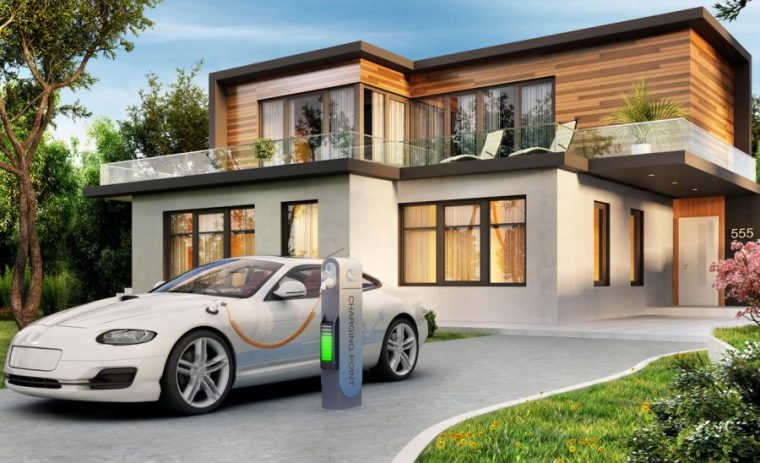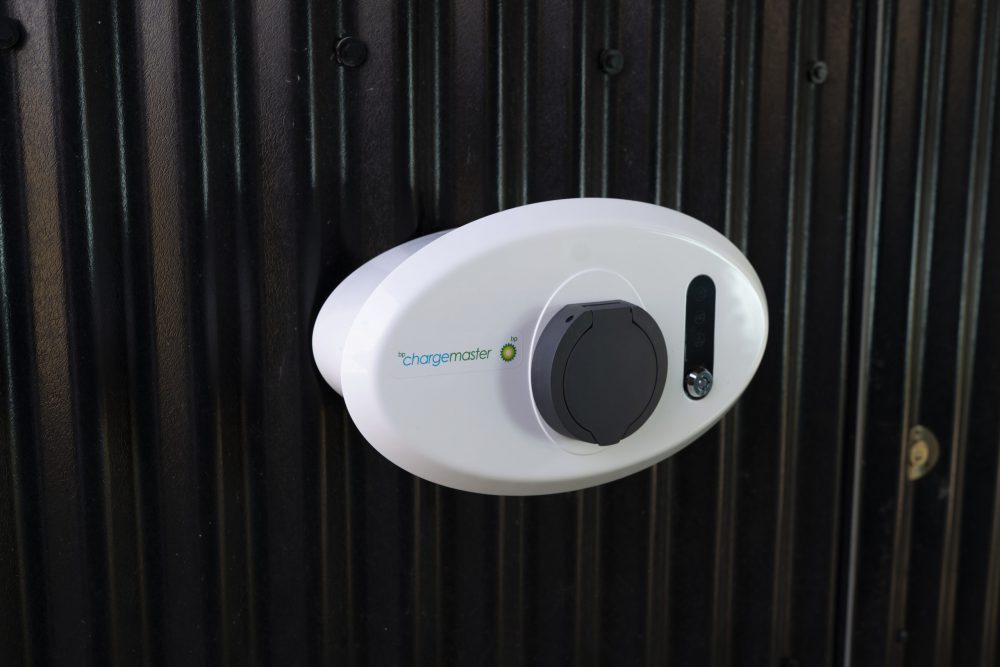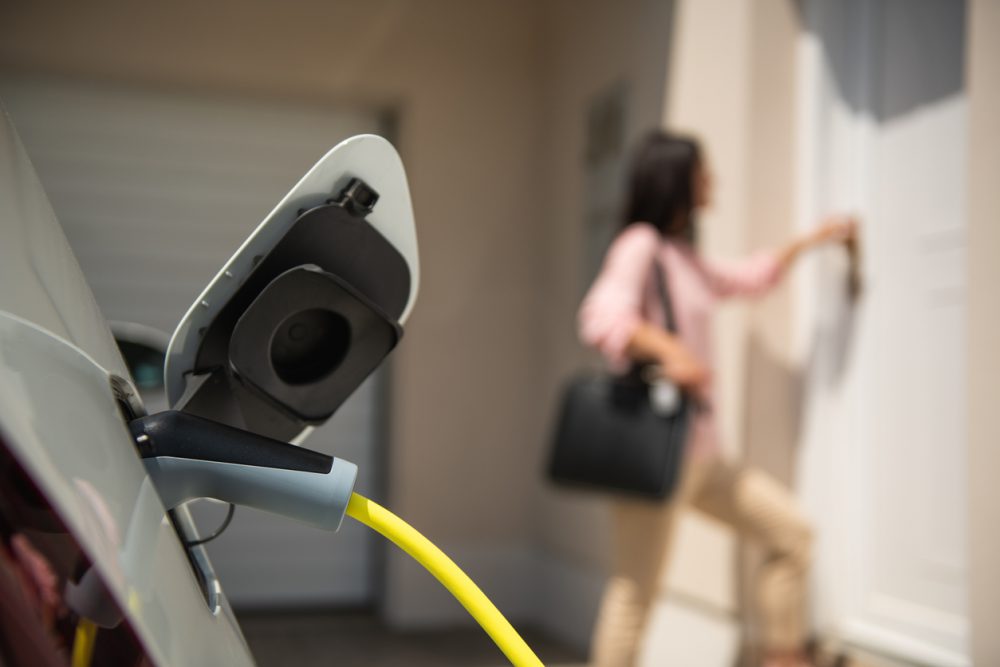
New electric car sales in the UK are currently booming and the number of charging points can’t keep up.
For the first 10 months of 2021, there has been an 88 per cent increase in electric vehicles (EVs) sold compared to the previous year. Now, one in 10 new cars sold is battery powered. In October this year, 16,155 new EVs left the showroom.
Throughout the UK, according to Zap-Map, over that same period there were around 900 new charging points. That’s one charging point for every 18 cars. It’s hardly surprising that many EV drivers are looking at having a charging point installed at home. But how easy is it?
Can’t you charge with a normal plug?
You could buy an electric car and plug it into the wall’s regular three-pin socket. The trouble is, it’ll probably only be able to charge at 2.3kW. That’s classed as a slow charger and ‘refuelling’ an EV from empty could take more than 24 hours. What you need is a proper home charging point.
What are home charging points?
These are boxes that sit on the wall of your property. They are then hard-wired into your electricity supply. The boxes have controls that enable you to program when you charge your car. This lets you take advantage of cheap tariffs if you have that option. They will also draw more power from the mains meaning faster charging.
Some boxes have what’s known as a tethered cable. This is attached to them. Others have an untethered cable. The latter is more flexible if you have more than one electric car with different connectors. But you do then have to store the cables somewhere.

How much do home charging points cost?
Prices vary but broadly they cost somewhere between £350 and £800. However, you can currently get a government grant towards having one installed. The Electric Vehicle Homecharge Scheme (EVHS) will cover 75 per cent of the price of a home charging point. But it is capped at £350 and the grant is set to end on 31 March 2022.
In order to take advantage of the scheme, you have to be using a government-approved company and they must be installing an approved unit. It’s worth considering this when you’re looking around for a charger.
Some car makers offer a free charging point when you buy one of their vehicles. You could always use this as a negotiating chip if you’re buying a new car.
Where do you buy charging points?
There are numerous companies out there selling charging points. You simply choose one that you like the look of and order it from the seller. They will then request a survey.
This might be an electrician coming to your property. It might be an online survey where you send in photographs of your consumer unit, meter, main fuse details and proposed location of the charging point.
This is so the supplier can be sure that they’re selling and installing a unit that isn’t going to fry the wiring in a property that might not have been upgraded since the 1950s.

What will the results be?
The whole point of getting your own charging point is so that you can charge your car relatively quickly and when you want to. It’s unlikely you’ll be able to install a rapid charger at your home. These will draw too much power for most domestic supplies but they will charge an electric car in less than an hour.
However, you should be able to have a fast charger put in. These will charge at a rate of 7kW. It means that an electric Vauxhall Corsa E with a 50kWh battery would take around seven hours to replenish fully from empty.
You will also be able to charge at the cheapest possible tariff for you. According to the government’s Go Ultra Low, that could result in motoring costing around 2 pence per mile ‑ about a fifth of what it costs in a regular combustion engine car. And it’ll be quite a lot cheaper than you’ll pay at a public EV charging point.
Need breakdown cover? Check out our electric vehicle breakdown cover here.
sounds like a great idea, how ever for the people that live in blocks of flats, or park homes, i think to be honest it would be a no no, then owners are restricted to paying over inflated prices in the towns and car parks.. after all who wants to pay car park charges for hours on end just to additionally have to pay over inflated prices, my son made that mistake..and he lives in a block of flats parking there is difficult at best of times.. i know that from when i visit…. meanwhile i ride my electric bikes as and when possible because now we are being ripped off on prices for petrol and diesel
A blindingly obvious but, of course, very crucial point made here. I used to live on a street of Victorian terraced houses. You would be lucky to get a parking spot outside your house let alone try and set up an EV charger. I have yet to see anything that addresses this very important point.
“According to the government’s Go Ultra Low, that could result in motoring costing around 2 pence per mile ‑ about a fifth of what it costs in a regular combustion engine car. ”
And you believe the Government???
No I don’t. They haven’t factored in the cost of the charger.(up to £800)
Also the likely battery replacement cost when the car is over 10 years old.
I don’t either. I estimate from the example given of the Corsa that it gets about 6 miles per kWh. I would like to find an electricity tariff of 12 pence per kWh.
So ‘a regular combustion engine car’ costs 10p/mile? Since petrol costs close to £1.50/litre that would be 15 miles/litre, or 68 mpg. That sounds as if the Government got its sums wrong again.
Also a Vauxhall Corsa E does less than 222 miles on its charge of 50kWh, which costs £9 at the cappe electricity rate, so that is more like 4p/mile. It is projected to rise by 50%to 6p/mile as the Government raises the pric cap by the endof theear.The Government is dreaming if they think the cost is only 2p/mile.
It is going to be very interesting for people with mobile homes if they have to go electric as well as electric cars strong enough to pull a caravan.
I entirely agree with comments already posted. Other things to be considered is people either living or going on holiday in rural areas. Also on motorways the capacity is not there to fulfil the needs of the amount of cars; given Green flag info re Corsa requirements.
What are the implications for people renting a home from the local authority would you need permission to get one installed and also the extra cost of having to get a dropped kerb put in by said local authority just adds to the overall cost of ‘going electric” if you do not already have a driveway as part of your home.
Hello the plan is that only the rich will drive like it was in the 1930s